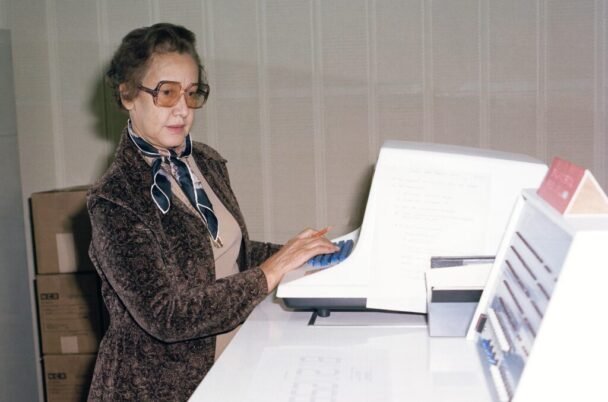Women Aren’t Logical? Debunking the Emotional Bias
For centuries, women have been labeled as overly emotional and, by contrast, less logical—a stereotype that persists in everyday conversations, media, and even hiring practices. But is this perception based on fact, or is it a product of cultural and historical bias? This article explores the long-standing claim that “women aren’t logical” and asks: Is emotion the enemy of logic, or could the two coexist—especially in women?
By unpacking psychological studies, gender norms, and real-world data, this blog aims to debunk the emotional bias that often undermines women’s rational abilities. The solution lies not just in science, but also in challenging outdated narratives that limit how logic is understood across genders.
Understanding the Roots of the Bias
The belief that women are less logical is not rooted in biology—it’s rooted in social conditioning and patriarchal history.
Historically, men dominated academic, political, and scientific arenas, leaving little room for women to display their intellectual capabilities. As a result, logic became socially associated with masculinity, while emotion was considered a feminine trait.
In ancient Greece, philosophers like Aristotle described women as “colder” and “less rational” than men.
The Victorian era further emphasized this divide, casting women as emotional caretakers rather than decision-makers.
But modern neuroscience and psychology tell a different story—one that recognizes both genders as capable of logic and emotion in different yet equally valid ways.
What Does Science Actually Say?
Contrary to old stereotypes, studies show no significant difference in overall intelligence or logical reasoning between men and women.
A 2019 meta-analysis published in Psychological Bulletin reviewed over 200 studies and found that while men might slightly outperform in spatial tasks, women often outperform in verbal and emotional intelligence tasks—neither being more or less logical.
The Harvard Business Review (HBR) noted that women score higher than men in key leadership traits, including decision-making, emotional intelligence, and problem-solving—all of which require logic.
Neurologically, the female brain processes emotion and decision-making through a more integrated network, which doesn’t mean women are “ruled by feelings”—it means they make informed, context-aware decisions, which is a strength in leadership and negotiation.
The Emotion–Logic False Dichotomy
The idea that logic and emotion are opposites is a false dichotomy. Emotions aren’t a weakness—they’re part of how all humans make decisions.
According to neuroscientist Antonio Damasio, patients with brain damage in emotional areas struggle to make rational decisions, proving that emotion is critical to logic.
Women’s emotional intelligence often enhances their social reasoning, empathy, and situational awareness.
In complex environments like politics, education, or business, these traits support—not sabotage—logical thinking.
So rather than assuming women’s emotions interfere with logic, it’s more accurate to say that emotions can enhance reasoning—especially when combined with critical thinking.
Real-World Examples: Logic in Action
Across the globe, women continue to demonstrate extraordinary logic and decision-making skills in diverse fields:

Angela Merkel, former German Chancellor, was widely praised for her rational, steady leadership through the Eurozone crisis and the COVID-19 pandemic.

Katherine Johnson, NASA mathematician, calculated flight paths that enabled Apollo 11 to land on the moon.

Maryam Mirzakhani, the first woman to win the Fields Medal in mathematics, was celebrated for her logical insight into complex geometry problems.
These women—and countless others—prove that logic isn’t male, and emotion doesn’t erase reasoning. Instead, women’s logical contributions have shaped science, governance, and society for generations.
How Bias Affects Women Today
Despite progress, emotional bias still affects women in the workplace, leadership, and tech sectors.
In hiring, women are often evaluated on personality and emotional presence, while men are judged on skills and results (source: Harvard Kennedy School).
In meetings, assertive women are sometimes labeled as “difficult” or “too emotional,” whereas men displaying the same traits are seen as confident leaders
This double standard discourages women from voicing opinions or applying for leadership roles, reinforcing the myth that logic is a male domain. But addressing this bias starts with awareness and education—and reshaping how we define intelligence and leadership.
FAQ
Q1: Are women more emotional than men?
A: Both men and women experience emotions equally. However, women are often more socially encouraged to express them. This doesn’t indicate a lack of logic—it reflects emotional literacy.
Q2: Can emotions and logic work together?
A: Absolutely. Neuroscience shows that emotions are essential to making logical decisions. Emotional awareness helps people assess risks, navigate relationships, and make smarter choices.
Q3: Why is the stereotype still so common?
A: It persists due to outdated gender norms, media portrayals, and workplace bias. Education and exposure to data-driven insights can help debunk this harmful myth.
Q4: How can we challenge the bias?
A: By promoting gender-inclusive leadership, encouraging STEM education for girls, and recognizing emotional intelligence as a component of logic—not its opposite.



